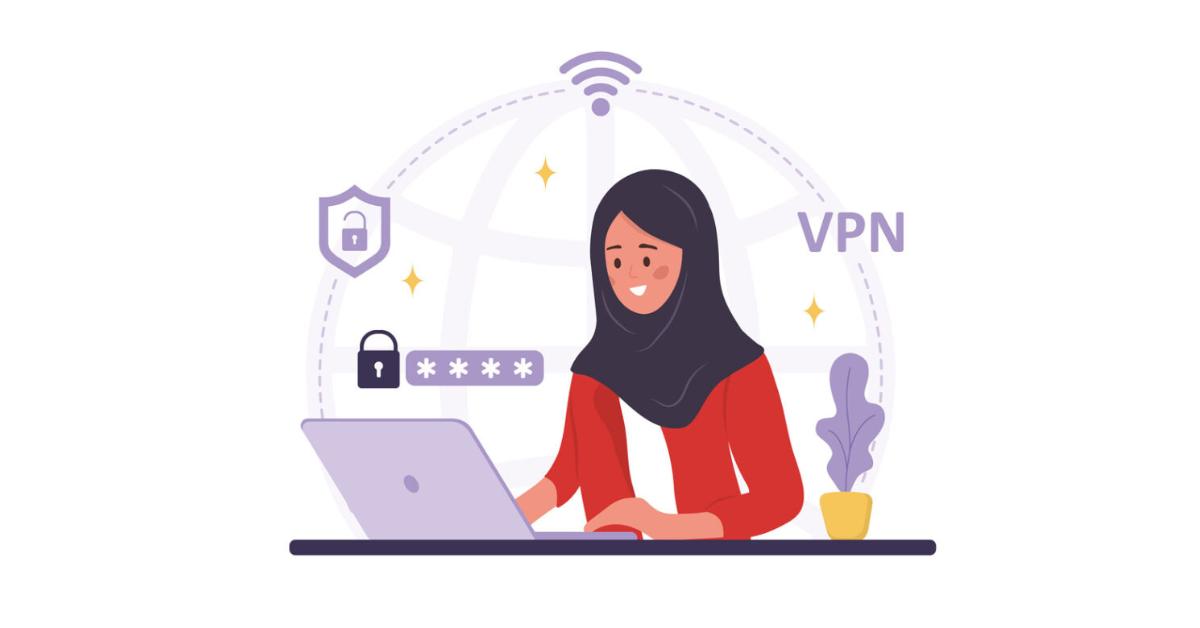Demystifying VPNs: A Comprehensive Guide on How a VPN Works
Virtual Private Networks (VPNs) have become indispensable tools in today’s interconnected digital world. Understanding how VPNs work is crucial whether you’re concerned about safeguarding your online activities, accessing geo-blocked content, or enhancing business security. This guide aims to demystify VPN technology, exploring its mechanics and the practical applications that make it a valuable tool.
What is a VPN?
A Virtual Private Network (VPN) extends a private network across a public network, usually the Internet. It is a technology that creates a secure and encrypted connection over a less secure network. It allows users to securely access resources, share data, and communicate privately over a public network as if directly connected to a private network.
Setting Up a VPN
Setting up and using a VPN is essential for ensuring online privacy, security, and unrestricted access to internet content. A VPN is a powerful tool that provides a secure, encrypted connection between your device and the internet—with growing concerns about online privacy and security, understanding how a VPN works is essential for businesses and individuals alike. First, let’s look at the process of setting up and using a VPN:
- Choose a VPN Service. Research a trustworthy VPN provider that meets your privacy, speed, server locations, and device compatibility requirements. Consider encryption protocols (e.g., AES-256), logging policy, and user feedback.
- VPN Concentrator Assignment. Based on your current estimated needs, a cloud-based VPN concentrator is assigned. This device is a hub for VPN connections, allowing multiple users to connect securely to a private network.
- Site-to-Site VPN Connection. A single site-to-site VPN connection is established from your site to the cloud, creating a secure tunnel for data transmission.
- User Access. Users can access the VPN concentrator from wherever they work, allowing them to access information securely from any location.
- Encrypted Communications. All VPN communications are encrypted, ensuring data security as it traverses the internet.
- Secure User Authentication. User authentication is configured to prevent unauthorized access to your company’s specific data.
Critical Components and Considerations When Using a VPN
Encryption Strength. AES-256 is the industry-standard encryption that ensures that data transmitted between your device and the VPN server remains secure and unreadable to unauthorized parties.
VPN Protocols. Various VPN protocols, such as OpenVPN, L2TP/IPsec, and IKEv2, offer different levels of security, performance, and device compatibility. Selecting the appropriate protocol for your needs is crucial for a seamless and secure VPN experience.
Network Configuration. To enable seamless VPN connectivity, necessary network configuration changes, such as updating firewall settings, may be required. This ensures that the VPN traffic can pass through without disruptions.
Monitoring and Management. Ongoing monitoring and management of the VPN connection are essential to guarantee its performance, security, and reliability. This includes updating software, patching vulnerabilities, and addressing connectivity issues as they arise.
Scalability and Flexibility. As your organization grows, your VPN service should be able to adapt and scale accordingly. This includes adding or removing users and adjusting the service to meet changing needs.
Distinguishing Between Consumer VPN Services and Enterprise VPN Solutions
When considering a VPN for your organization, it’s crucial to understand the difference between consumer VPN services and enterprise VPN solutions. While both types of VPNs aim to secure your data and protect your privacy, they serve different purposes and come with distinct features tailored to their respective users’ needs:
- Customization. Enterprise VPN solutions offer a higher degree of customization compared to consumer VPN services. This allows organizations to tailor the VPN service to their security requirements, network architecture, and business objectives. Consumer VPN services, on the other hand, often provide a one-size-fits-all approach, which may not meet a business’s unique needs.
- Management Options. Enterprise VPNs often have advanced management tools and interfaces that enable administrators to monitor, configure, and manage VPN connections more effectively. This includes creating user groups, applying access controls, and monitoring network usage. Consumer VPN services typically have more limited management options since they are designed for individual users rather than organizations.
- Integration with Security Systems. Enterprise VPN solutions are designed to integrate seamlessly with existing security systems such as firewalls, intrusion prevention systems, and multi-factor authentication. This ensures a comprehensive security framework that protects the organization’s data and resources. Consumer VPN services may not offer the same level of integration or compatibility with other security tools.
- Technical Support and Service Level Agreements (SLAs). Enterprise VPN providers usually offer dedicated technical support and SLAs that guarantee performance, uptime, and responsiveness. This ensures that organizations can rely on their VPN service to maintain the security and accessibility of their network. Consumer VPN services may have less comprehensive support options and lack the same guaranteed service level.
- Scalability. As mentioned earlier, enterprise VPN solutions are designed to scale with the growth of an organization. This means they can accommodate additional users, devices, and network resources. Consumer VPN services may have limitations in terms of scalability and might not be suitable for businesses with expanding needs.
Conclusion
In conclusion, understanding how a VPN works and recognizing the differences between consumer VPN services and enterprise VPN solutions are vital for enhancing online privacy and security. By selecting a VPN service provider that meets your organization’s requirements and offers customization, management options, security system integration, technical support, and scalability, you can confidently navigate the digital landscape knowing your data is secure and your privacy is protected. Leverage a VPN to protect your data, securely access the information you need from any location, and enjoy a more private browsing experience. Don’t hesitate to contact us today to discuss a tailored VPN solution for your organization and experience the benefits of enhanced security and privacy.

